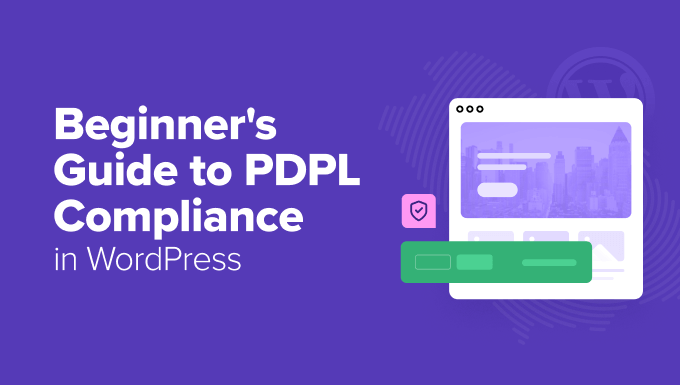I’ve assisted WordPress users with various privacy laws, but Saudi Arabia’s Personal Data Protection Law (PDPL) often surprises website owners.
If your site collects personal data from Saudi Arabian residents (and it likely does), PDPL compliance is mandatory.
Contact forms, newsletter signups, user accounts, blog comments—all fall under the law’s requirements, regardless of your location.
I frequently hear from readers who only realize this when facing penalties.
The good news? Compliance doesn’t have to be complex or costly.
I’ve researched the PDPL for months and tested WordPress tools to create this beginner-friendly guide. I’ll show you how to protect your business, comply with the law, and build audience trust.

⚠️ We are not lawyers. This article is for informational purposes only and does not constitute legal advice. We highly recommend consulting with a qualified legal professional to ensure your business is fully compliant with the PDPL and other privacy regulations.
What Is the Personal Data Protection Law (PDPL)?
Saudi Arabia’s Personal Data Protection Law (PDPL) is a privacy law protecting the personal data of Saudi Arabian residents. It sets rules for data collection, use, and storage.
Similar to other privacy laws like the GDPR, the PDPL affects global websites, blogs, and online stores.
If your site handles data from Saudi residents, the PDPL likely applies to you.
Understanding this law and taking steps to comply is crucial.
Why WordPress Users Should Care About PDPL Compliance
Ignoring the PDPL can have serious consequences. Fines can reach up to SAR 5 million (about $1.3 million USD) per violation, doubling for repeat offenses.
Unlawfully sharing sensitive data, especially with harmful intent, can lead to severe penalties, including up to two years in prison and fines of SAR 3 million (around $800,000 USD).
However, PDPL compliance is also about trust.
By giving visitors control over their data, you show respect for their privacy. Building trust can increase signups, conversions, and sales, helping to





